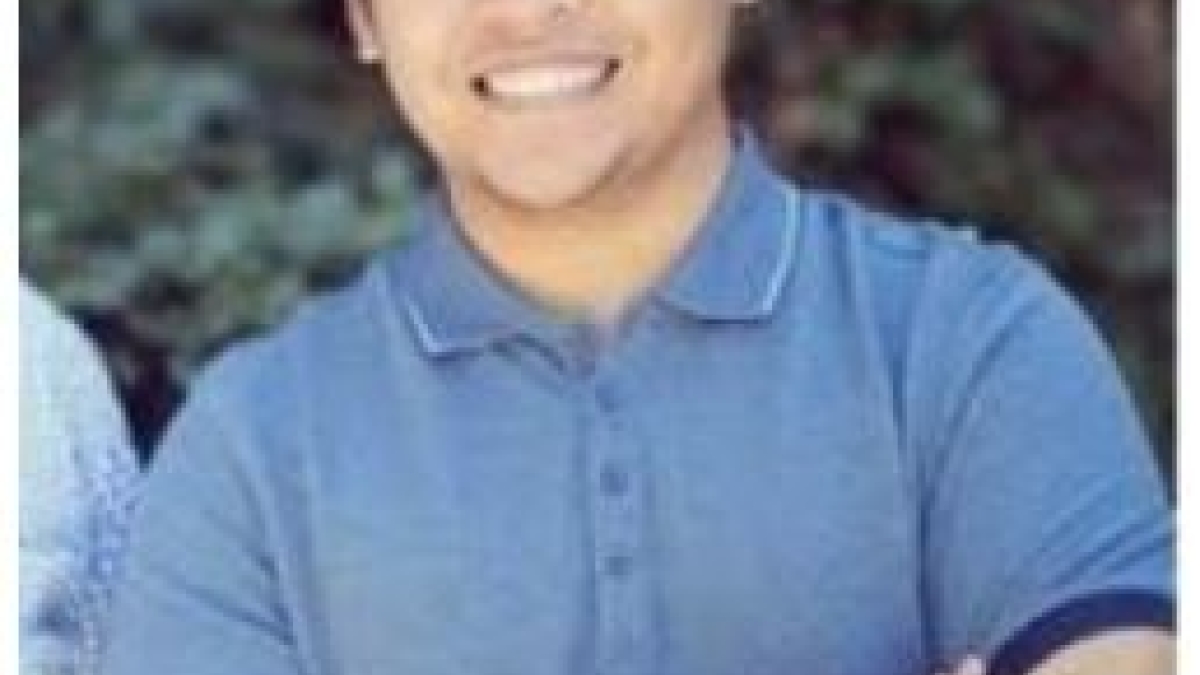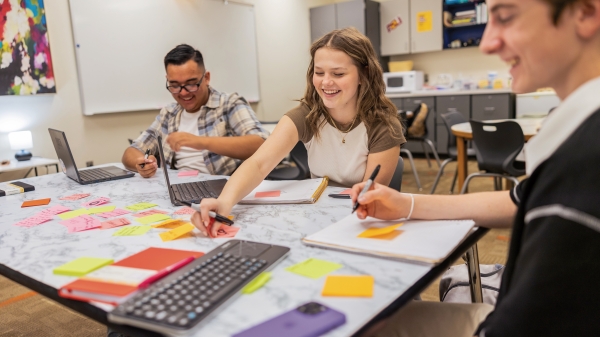Three-time ASU grad reflects on mentors, motivations

Errold Elad graduates this fall with his bachelor's degree in family and human development.
Editor's note: This story is part of a series of profiles of notable fall 2020 graduates.
Born and raised in the Philippines, Errold Elad is the first in his family to have earned a college degree in the United States. And his bachelor’s degree from The College of Liberal Arts and Sciences this fall won’t mark his first degree from Arizona State University, it’ll be his third.
Elad and his family immigrated to California 12 years ago and once he turned 18, Elad embarked on his nearly decade-long journey in higher education. His first stop was vocational school where he became a medical assistant, next came community college where he earned his associate degree and then, after researching top programs for anthropology, he arrived at ASU.
“I was able to work with renowned professors, people who are experts in their fields. That is what attracted me to ASU and the reason I keep coming back,” Elad said. “I feel at home at ASU, I feel they offer so much information and so many learning opportunities. Professors mentor you, they push you to pursue your goals, they make sure you have a better future.”
In 2015 Elad earned his bachelor’s degree in anthropology, in 2019 he earned his master’s degree in applied ethics and professions and now in 2020, he’s earning another bachelor’s degree, this time in family and human development.
“For me to better help people, understanding the cultural, social and economic factors will be helpful. I decided to major in anthropology and then family and human development because when it comes to health, it starts at home,” he said.
Elad’s not ready to leave academia quite yet – in his pursuit of a career in healthcare, he is continuing on at ASU to earn his doctorate in behavioral health. He said he’s driven by the desire to help people.
“Back in the Philippines, we don't have a lot of medical professionals focused on behavioral health. I think that's the reason why there are less people getting diagnosed with depression and anxiety and stuff like that,” he said. “Hopefully in the future, I’ll be able to go back to the Philippines and help train people how to effectively help their patients.”
Elad shared more about his academic journeys at ASU.
Q: What did it mean to you to be the first in your family to earn a college degree in the US?
A: At first I really doubted myself because no one in my family had attended college here in the U.S. We didn’t know anything basically, so I just pushed myself and said, “I really want to graduate. I really want to get my bachelor's degree.” Being the first one in my family to receive a degree here in the U.S., it's not only helping me, but also helping my family here and in the Philippines because it’s basically lifting us up from poverty. Education is like a window or a door for us to work in a higher paying job and not just stay at minimum wage.
Q: Did you experience any obstacles along your way? How did you overcome them?
A: One obstacle was me not being a native English speaker. It's really hard for me; it's difficult because when it comes to things like studying, I doubled the expected time spent on reading and homework, sometimes it tripled because I had to read and relearn and understand all the materials to be able to follow the instructions and pass my courses. To overcome this, I maximized the use of ASU’s resources, like the tutoring and writing centers. I also got involved on campus to communicate with fellow students, my professors and coworkers.
Q: Were there any clubs/organizations or opportunities that positively impacted your ASU experience?
A: The first time I came here to ASU, I joined the anthropology club and was also a part of the Residence Hall Association. I also joined the Asian/Asian Pacific American club. I enjoyed the experiences because I was able to socialize with my fellow students and learn so much. Joining those organizations gave me confidence and the ability to network and get introduced to new information and opportunities, like learning about grad school.
Q: Which professor taught you the most important lesson while at ASU?
A: Dr. Shauna BurnSilver and Dr. Monica Gaughan both mentored me and helped me be more confident when it came to research and getting involved. I was a student researcher for them and they introduced me to a lot of techniques when it comes to research. They provided information about things like applying for a physician assistant or medical school. They gave me access to information that I didn't know I was able to access. As professors, they believed in me and were very patient even though English is not my first language. Dr. BurnSilver pushed me to do a symposium about Native kinship in Alaska and she said, “You need to do this. I think you’re ready to participate.” She pushed me because she knew that I could do it. She just believed in me, and that really feels good that someone is believing in you.
Q: What’s the best piece of advice you’d give to those still in school?
A: There's a lot of resources at ASU that you can utilize. Do not be afraid to ask for help because ASU is there to help you be successful in life.
Q: Next, you’re pursuing your doctoral degree. What are your plans or goals after your next graduation?
A: I plan to work for a year then return to school to become a physician assistant. I think the combination of my background and specifically the DBH and PA programs will complement each other because I’ll have an understanding of human behavior, background and the medical aspect.
Q: Is there anything else you’d want to share with students or people considering pursuing higher education?
A: I just want to share that education is very important. It will open a lot of doors for you and if you have the ability to go to school, don't waste it, just go for it.
More Arts, humanities and education
Illuminating legacy at ASU
In 2020, the ASU Art Museum unveiled a groundbreaking installation, "Point Cloud (ASU)," by renowned artist Leo Villareal. The…

Name change for ASU's Mary Lou Fulton Teachers College reflects college's mission
Arizona State University’s Mary Lou Fulton Teachers College has a new name: the Mary Lou Fulton College for Teaching and Learning…

Exhibit to feature artwork inspired by oral histories from Arizona's oldest botanical garden
Though it is Arizona's largest botanical garden and has been an established touchstone of the community for more than 100 years,…